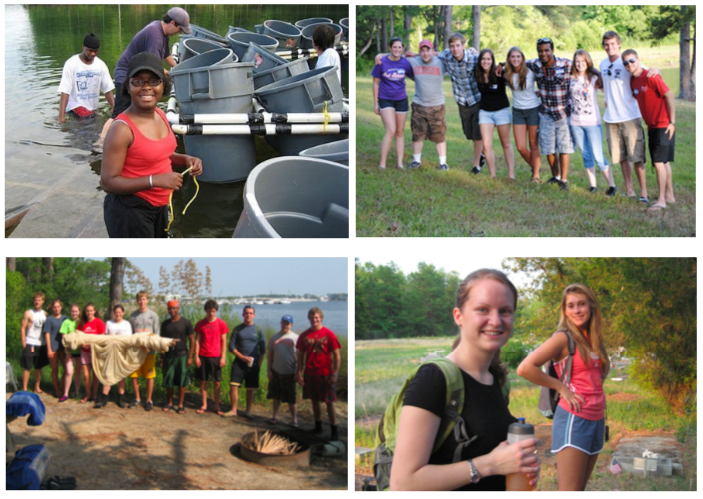NSF Research Experiences for Undergraduates (REU) program
Warm-water Aquatic Ecology
Auburn University, Auburn, Alabama, USA
Summer 2020: May 17 to July 26
http://wilsonlab.com/reu/

We are excited to invite applications from undergraduate students to participate in a National Science Foundation supported summer Research Experiences for Undergraduates (REU) program focused on the ecology of southeastern ponds, rivers, reservoirs, and estuaries. Ten undergraduate students will work closely with a team of Auburn University faculty to explore aquatic ecosystems, complete a student-driven research project, participate in a variety of professional development and social activities, develop and lead an outreach project, and share their research findings in a symposium at the conclusion of the program. Participants will work closely with our mentors to develop an interdisciplinary project involving complementary fields, such as community ecology, limnology, evolution, fisheries management, molecular biology, conservation, biogeochemistry, biodiversity, and microbiology. The program will run from May 17 to July 26, 2020 (10 weeks).
All applicants who are interested in receiving NSF support must currently be a (1) U.S. citizen, U.S. national, or permanent resident and (2) an undergraduate freshman, sophomore, junior, or senior graduating no earlier than September 2020 or a high school senior that will start their undergraduate education the following fall semester after the REU program. We are especially encouraging students from traditionally under-represented groups in biology (i.e., African-Americans, Hispanic Americans, Native Americans, Alaska Natives, Native Hawaiians, other Pacific Islanders, students with disabilities, first generation college students, and U.S. veterans) as well as students from institutions with limited research opportunities (e.g., community colleges) and/or students in financial need to apply.
Although not financially supported by our REU Site, we are also open to including a few strongly motivated and self-funded international students in our REU Site research and professional development activities.
Share the flyer widely!



